Coming Soon ...
1.6
Growing fodder trees and use as feed
Level 2 - Lead Farmers
Introduction

1. You will learn about...
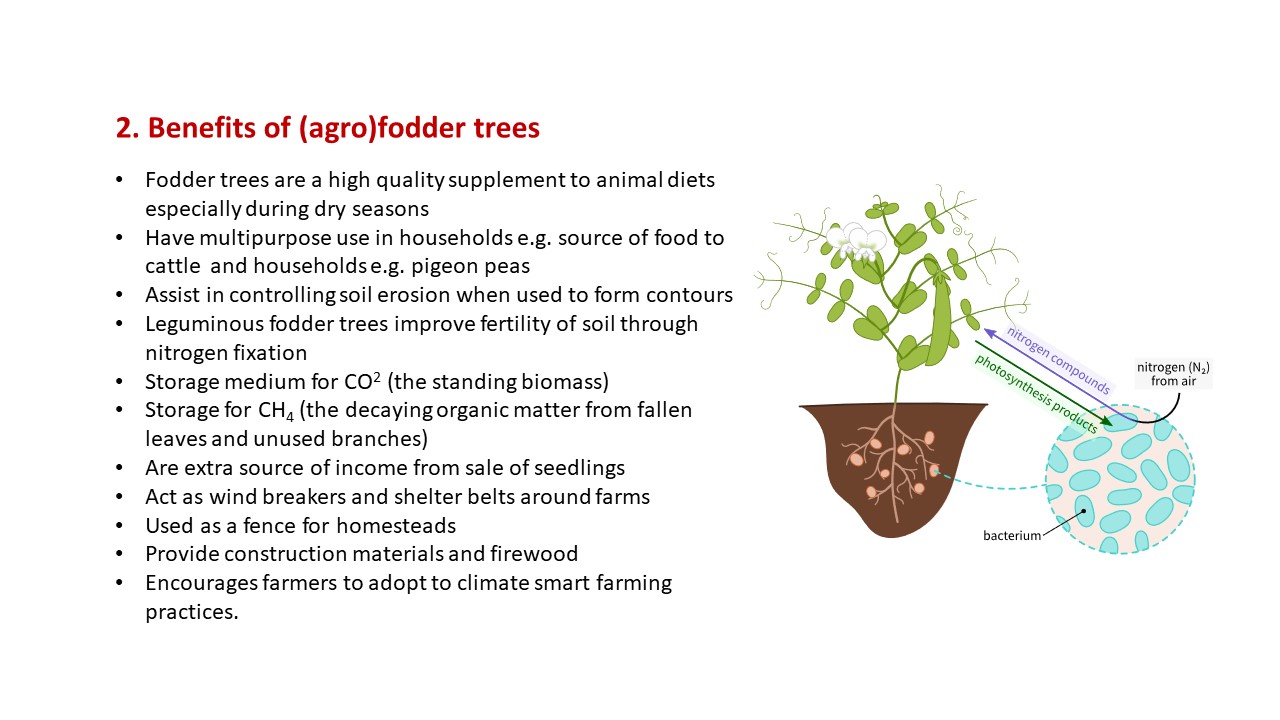
2. Benefits of (Agro) fodder trees

3. Characteristics of fodder trees

4. Examples of fodder shrubs and trees
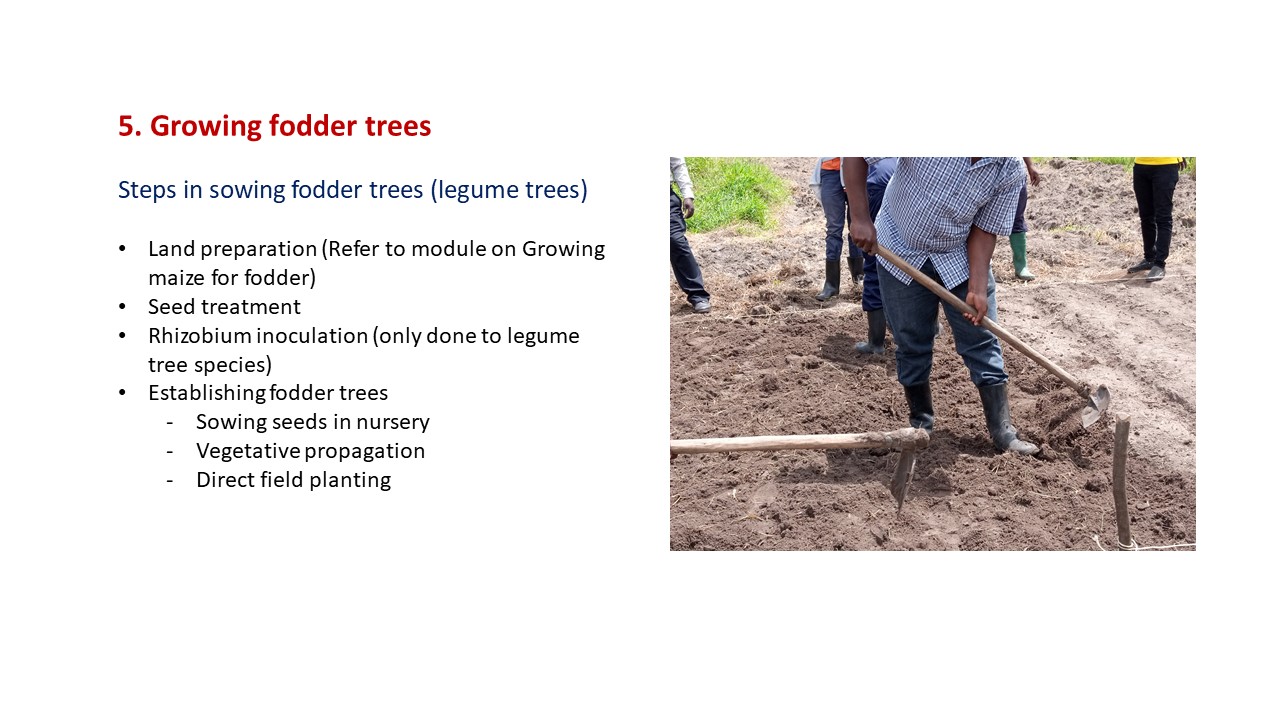
5. Growing fodder trees

6. Seed treatment

7. Seed treatment cont...
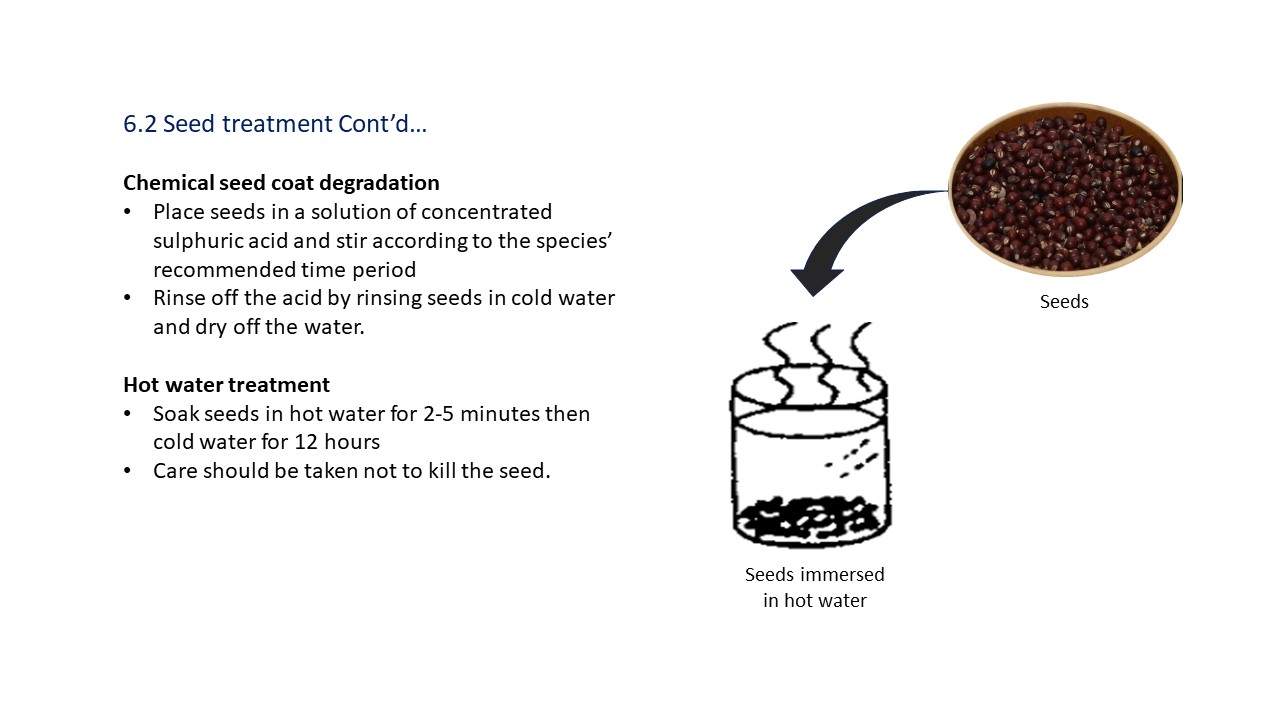
8. Seed treatment cont...

9. Rhizobium inoculation

10. Establishing fodder trees

11. Sowing fodder trees in a nursery
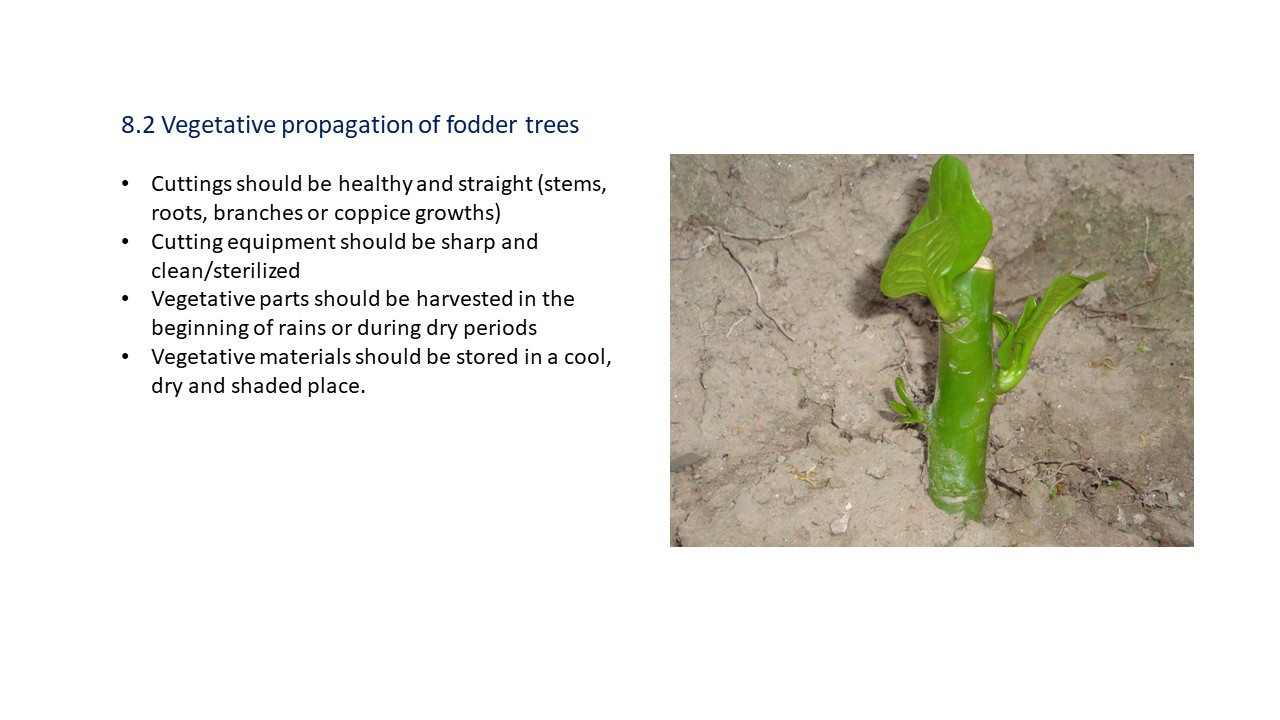
12, Vegetative propagation of fodder trees

13. Direct field planting of fodder trees

14. Fodder trees as animal diet supplements
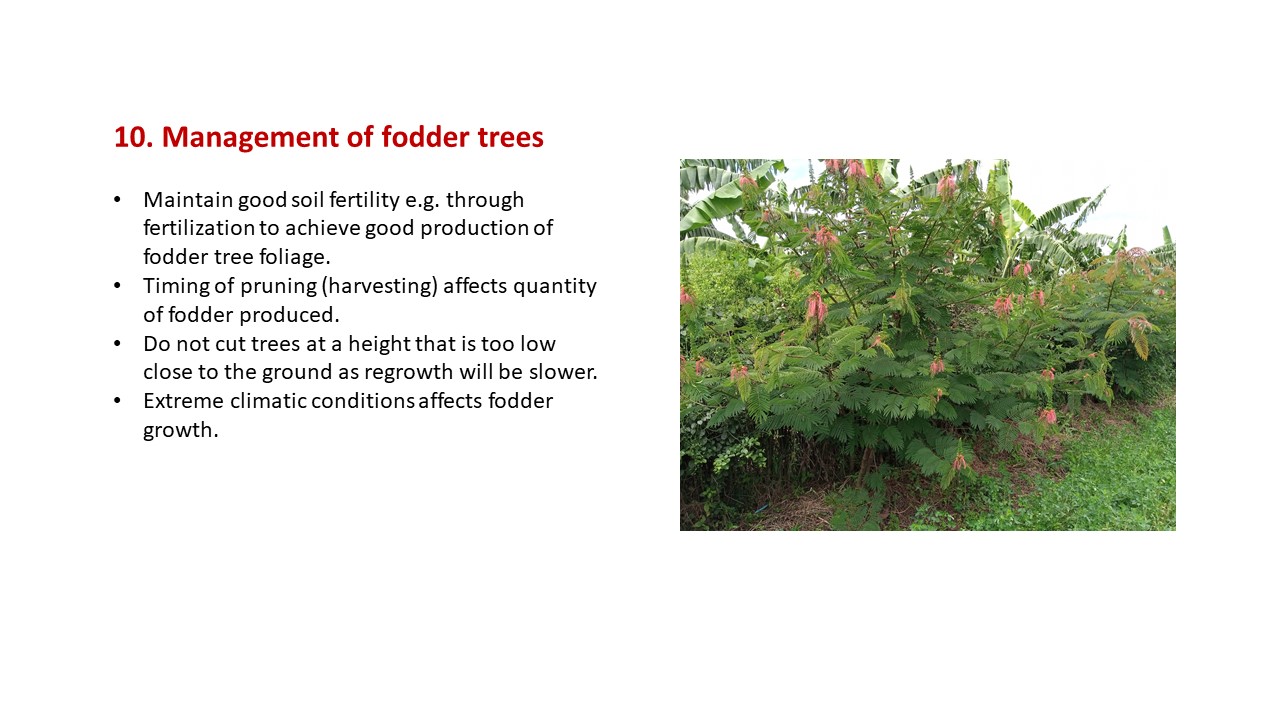
15. Management of fodder trees

16. Calliandra (Calliandra calothyrus)
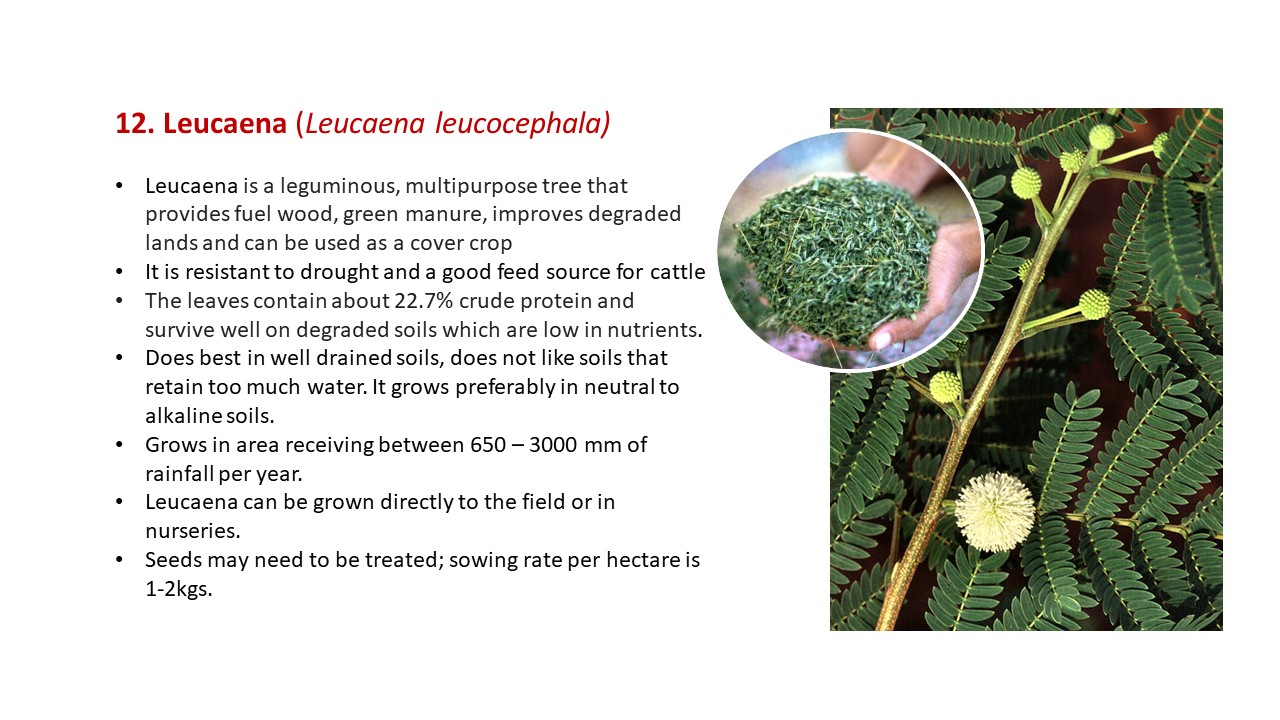
17. Leucaena (Leucaena leucocephala)

18. Sesbania (Sesbania sesban, S. grandiflora)

19. Gliricidia (Gliricidia sepium)

20. Pigeon pea (Cajanus cajan)

21. Fodder trees in farming systems

22. Fodder trees in agroforestry systems
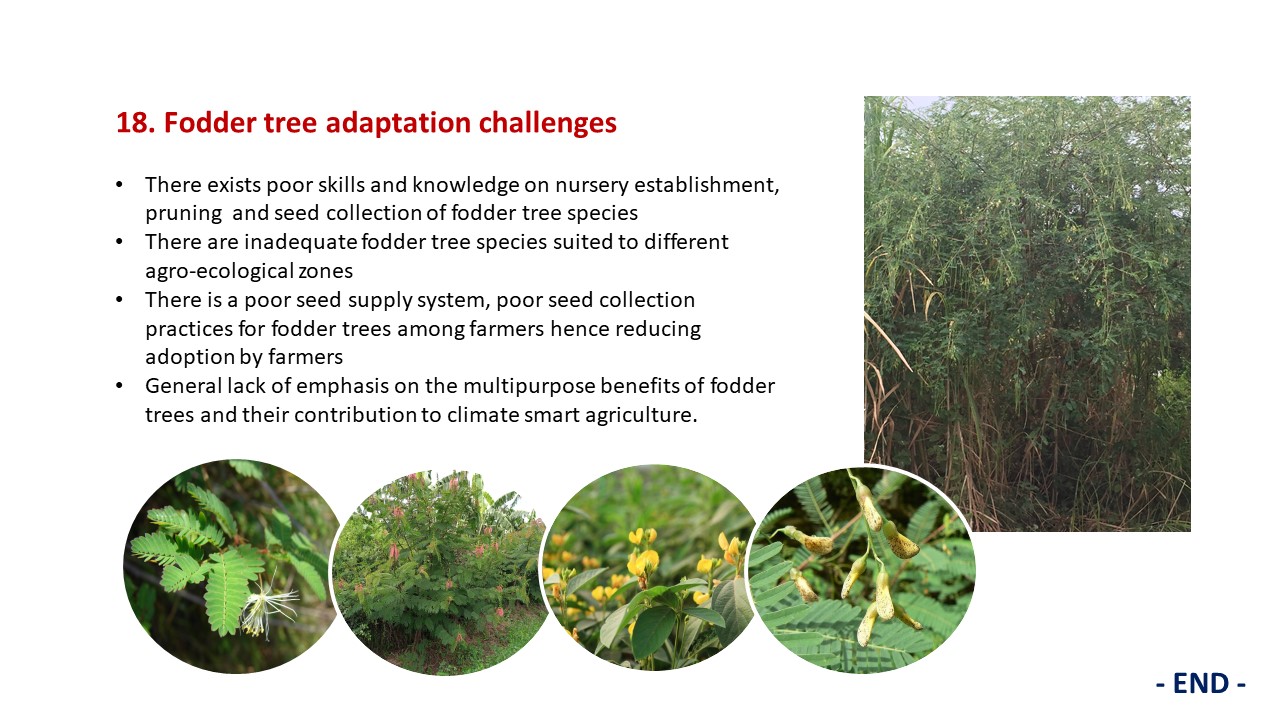
23. Fodder tree adaptation challenges






















